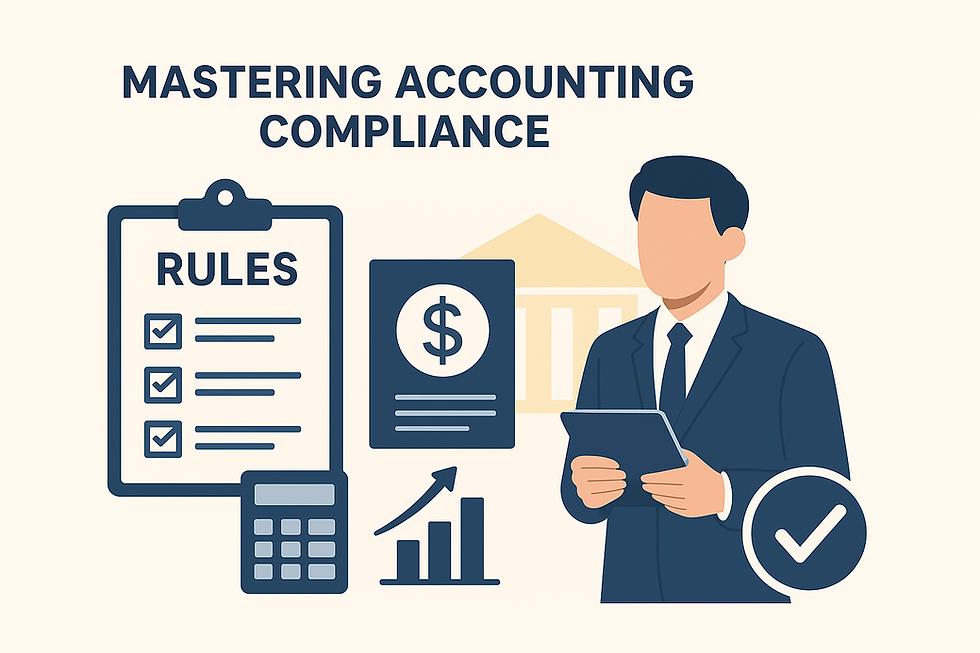Tax Compliance for Charitable and Religious Trust: Understanding Form 9A
- kanumillinagakarth
- Sep 1, 2025
- 4 min read

Introduction:
Charitable and religious trusts in India are eligible for complete income tax exemption under Section 11 of the Income Tax Act, 1961, provided they apply at least 85% of their income towards charitable or religious purposes in India during the financial year. They are allowed to accumulate or set apart up to 15% of their income without any conditions.
However, if a trust is unable to apply the required 85% of its income in the same year—either because the income was not received or due to other valid reasons—it must file Form 9A within the prescribed time to retain exemption. The trust can then apply the unspent income in the immediately following year.
1. Benefit under Section 11(1)(a):
Under Section 11(1)(a) of the Income Tax Act, at least 85% of the income of a charitable or religious trust must be applied towards its objectives in India during the financial year.
The trust can accumulate or set apart up to 15% of its income without any conditions.
The balance 85% must be applied during the year to retain tax exemption.
However, in practical cases, trusts may not be able to apply 85% of their income in the same year due to late receipt of funds or other reasons. To deal with such situations, the law provides relief through Form 9A.
2. What is Form 9A?
Form 9A is a declaration form that charitable or religious trusts can file to inform the Income Tax Department that they could not apply 85% of their income during the year, but they intend to apply it in the immediately following year.
3. When Can Form 9A Be Filed?
Under Section 11(1)(a) of the Income Tax Act, 1961, trusts or institutions are required to apply at least 85% of their income during the financial year. However, in certain situations, they may not be able to meet this requirement—for example, when the income is not actually received during the year, or when it cannot be applied for other genuine reasons. In such cases, the law provides relief through Form 9A, which allows the trust to defer the unspent income and apply it in the immediately following year without losing exemption.
4. Filing Process
Mode of Filling: Form 9A must be filed electronically through the Income Tax e-filing portal. The submission can be made either using a Digital Signature Certificate (DSC) or by verifying through an Electronic Verification Code (EVC), depending on the mode applicable to the trust or institution.
Details required in Form 9A: While filing Form 9A, the trust needs to provide certain essential details, such as its name, PAN, and registration number, along with the relevant assessment year and financial year. The form must also specify the amount of income that could not be applied during the year, the reason for such non-application, and a declaration confirming that the unspent income will be applied in the immediately following year.
Timeline: Earlier, trusts were required to file Form 9A before the due date of filing the return of income under Section 139(1). However, after amendments, the requirement has become stricter. Now, Form 9A must be filed at least two months prior to the due date of filing the return.
5. How is Form 9A is different from Form 10
Many trusts often confuse Form 9A with Form 10, though both serve different purposes under the Income Tax Act. Form 9A is used when there is a shortfall in applying the required 85% of income in the current year, allowing the trust to carry forward the unspent amount and apply it in the immediately following year. On the other hand, Form 10 is meant for planned accumulation of income beyond the 15% limit, where the trust intends to set aside funds for specific purposes such as construction of a school, hospital, or other long-term projects, and the income can be accumulated for up to five years.
To know more about Form 10 click here.
6. Consequences of Non-Filing
If Form 9A is not filed within the prescribed time, the consequences can be significant for the trust. The unspent portion of income will be treated as taxable income of the trust, and it may lose the exemption benefits available under Section 11 of the Income Tax Act. In addition, the trust could also be liable to pay interest or penalty for short payment of tax, which increases the overall compliance burden.
Conclusion
Tax exemptions are available to charitable and religious institutions under Section 11 of the Income Tax Act, 1961. A trust can retain up to 15% of its income without filing any additional forms. However, if the threshold is exceeded and the trust is unable to apply the required 85% of its income in the same year, it must file Form 9A. This form serves as formal permission from the Income Tax Department to defer the application of income under specified conditions. To avoid penalties or loss of exemption, timely filing of Form 9A is essential. At ProLead, we assist organizations in meeting their compliance requirements on time, allowing them to stay focused on their core mission while we take care of the legal and tax compliances.




Comments